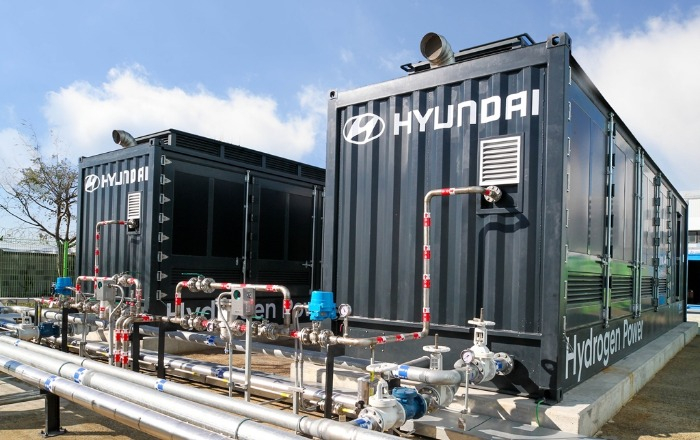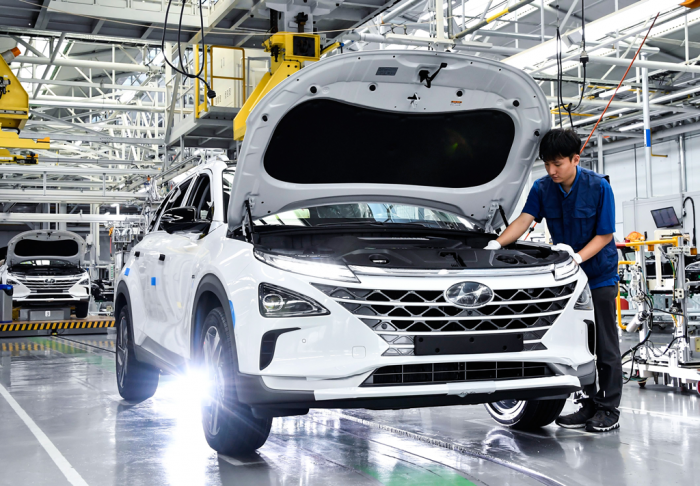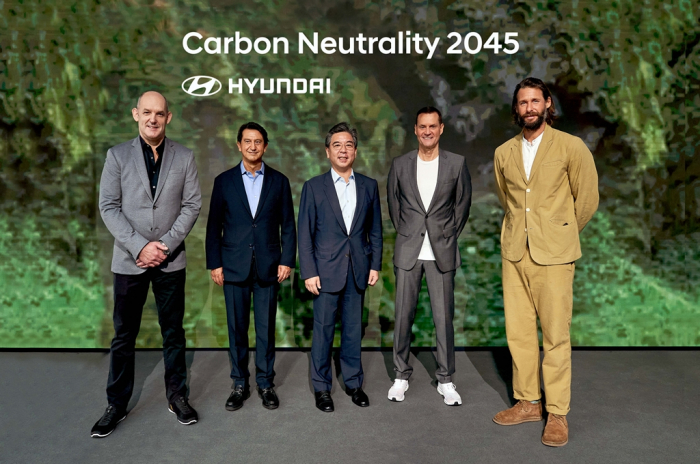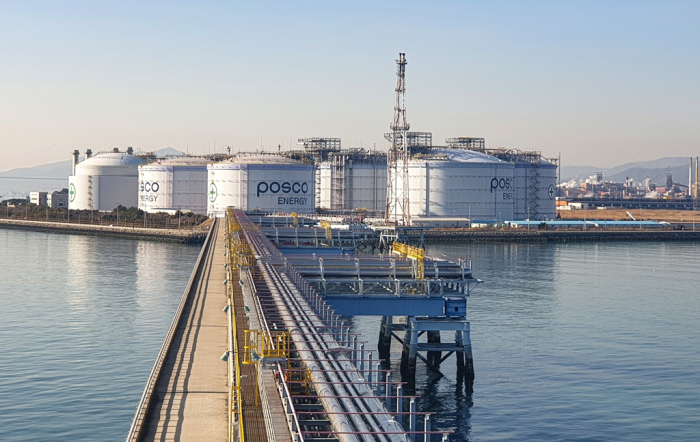Automobiles
Hyundai Motor to build LNG plant to power its factories
The top Korean automaker aims to increasingly adopt hydrogen under the RE100 initiative
By May 09, 2022 (Gmt+09:00)
3
Min read
Most Read
LG Chem to sell water filter business to Glenwood PE for $692 million


Kyobo Life poised to buy Japan’s SBI Group-owned savings bank


KT&G eyes overseas M&A after rejecting activist fund's offer


StockX in merger talks with Naver’s online reseller Kream


Mirae Asset to be named Korea Post’s core real estate fund operator



Hyundai Motor Co. plans to build a liquefied natural gas-fueled power plant to secure a stable supply of electricity for its factories and embrace the global paradigm shift toward eco-friendly practices by cutting carbon emissions.
The top South Korean automaker plans to build the LNG-powered combined heat and power generation plant at its main factory in Ulsan, southeast of Seoul with an aim to complete construction by 2025, people familiar with the matter said on Monday.
Hyundai Motor will buy LNG, fuel for the plant, from Korea Gas Corp. or SK Gas Co.
If all goes to plan, the LNG plant with 184-megawatt capacity, including 21.6 MW power for emergency use, will account for 72% of the carmaker’s annual energy use of 1.29 MWh supplied by Korea Electric Power Corp., the sources said.
The plant to be equipped with two gas turbines and one steam turbine will not only generate electricity but also produce steam for heating. Hyundai currently runs 15 boilers to produce 710,000 tons of steam a year . About 59% of the steam production will be replaced by the new LNG plant, they said.
Hyundai Motor’s investment in the project is expected to be in the trillion won range, according to the sources.
The company last week held an explanation session on the project before Ulsan citizens in the district where the LNG plant will be located, they said.

CARBON NEUTRAL BY 2045
Hyundai’s plan to build its own power plant is part of Hyundai Motor Group’s vision to achieve carbon neutrality by 2045.
The company said last September that it will spend heavily on cleaner transportation and greener energy solutions to achieve its zero-emission target by shifting toward battery electric vehicles and fuel cell electric vehicles.
The carmaker has said it plans to stop selling internal combustion engine models, including hybrid cars, in Europe from 2035, and cease selling those vehicles in other markets such as the US, China and South Korea by 2040.
In his New Year’s speech in January, Hyundai Motor Group Chairman Chung Euisun said the group aims to become a top-tier eco-friendly auto brand with its focus on electrification, autonomous driving, robotics and urban air mobility.
He said the group, which owns Hyundai Motor and sister firm Kia Corp., plans to go carbon neutral in the group's entire processes, from automaking to vehicle disposal, to drastically cut carbon emissions.

TO ADOPT HYDROGEN UNDER RE100 INITIATIVE
Tougher global environmental regulations on carbon emissions are driving governments and private companies to embrace the hydrogen economy, which utilizes hydrogen as a fuel for heat, hydrogen vehicles, energy storage and long-distance energy transport.
Japan’s Nissan Motor Co. in December of last year was granted permission to expand the solar farm at its plant in Sunderland, UK, by 20 MW to double the amount of onsite renewable electricity generated and cover 20% of its needs.
Nissan said the power generated renewably will be enough to build every 100% electric Nissan LEAF sold in Europe.
German automaker Volkswagen, which planned to replace its coal-fired boilers with gas and steam turbine units, said earlier this month it is prolonging its use of coal due to the Russian energy threat amid the protracted war with Ukraine.

While the LNG-powered plant Hyundai plans to build will help the Korean automaker power its electric vehicle factories, which require more electricity than combustion engine car plants, the company will eventually replace LNG with hydrogen as environmental organizations such as the Climate Group don’t recognize LNG as renewable energy.
The Climate Group, a London-based organization, in 2014 kicked off a multinational campaign, RE100, to urge big companies to make the full switch to renewable energy by 2050.
The campaign, which targets companies that use more than 100 GWh per year, prompts them to transition to using 100% renewable electricity from as early as 2025.
Write to Il-Gue Kim at Black0419@hankyung.com
In-Soo Nam edited this article.
More to Read
-

-
 Electric vehiclesHyundai accelerates electrification strategy, targets 7% of EV market
Electric vehiclesHyundai accelerates electrification strategy, targets 7% of EV marketMar 02, 2022 (Gmt+09:00)
4 Min read -
 ESGAPG urges Samsung, other Korean carbon emitters to take action
ESGAPG urges Samsung, other Korean carbon emitters to take actionFeb 17, 2022 (Gmt+09:00)
3 Min read -
 Future mobilityHyundai’s Chung charts vision as top-tier eco-friendly auto brand
Future mobilityHyundai’s Chung charts vision as top-tier eco-friendly auto brandJan 03, 2022 (Gmt+09:00)
3 Min read -
 Electric vehiclesKia to go EV-only in Europe by 2035, teases EV9 SUV concept
Electric vehiclesKia to go EV-only in Europe by 2035, teases EV9 SUV conceptNov 11, 2021 (Gmt+09:00)
2 Min read
Comment 0
LOG IN


